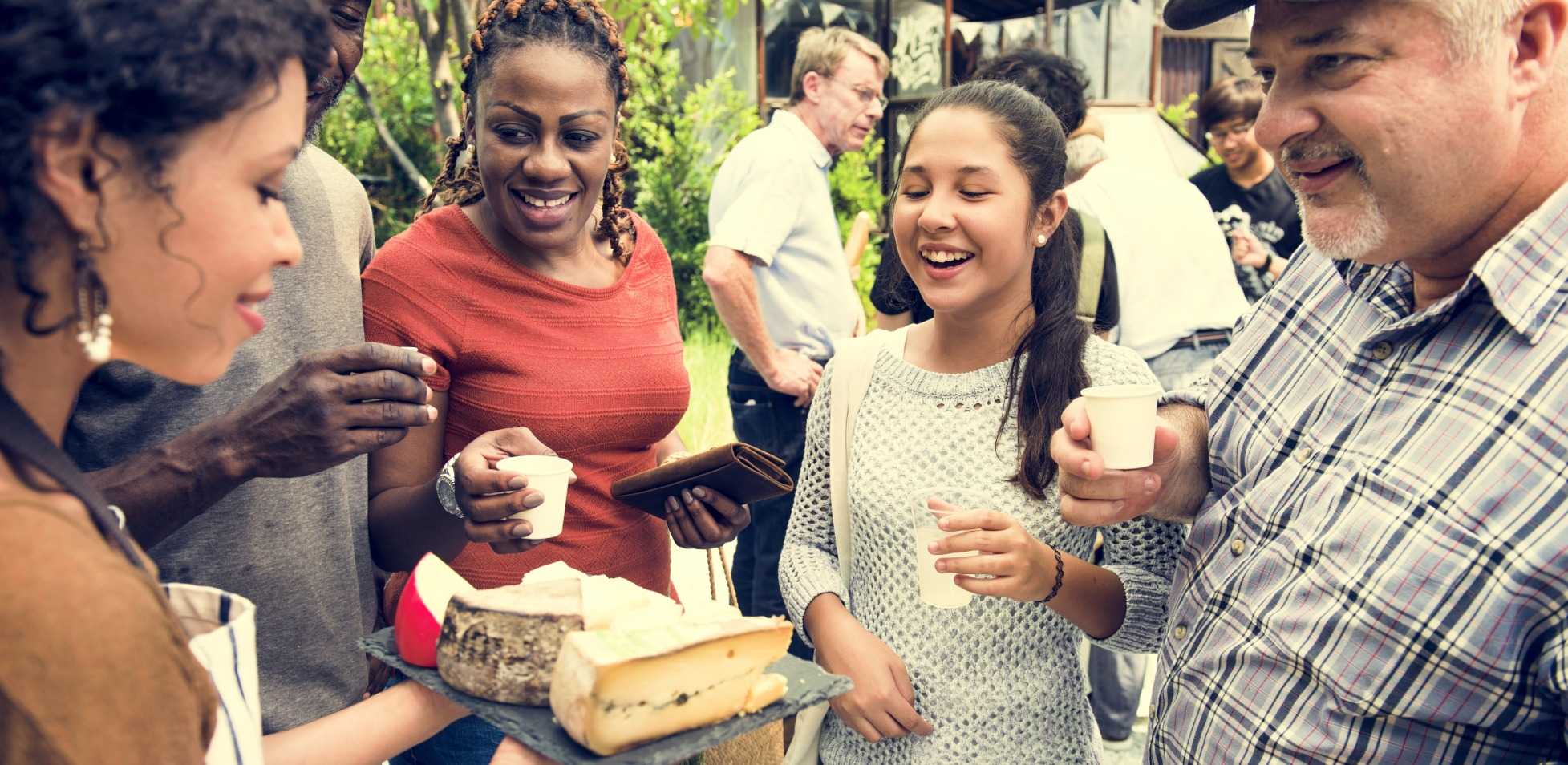Seven Reasons Why You Aren‘t Fitting in With the Locals
You took a huge step by moving to a new country! However, it doesn’t quite feel like home yet without the right people by your side. Making new friends through cultural barriers can be a struggle, but thankfully there are ways to make it easier.

Making new friendships is tough, but certainly not impossible! The first step to overcome this dilemma is to understand what you may be doing wrong.
If you are having problems befriending the locals it might be because:
1. You Do Not Understand the Local Language
Sometimes people live in places where they don’t need to know the language to communicate with the locals. However, understanding another language is a useful skill that can benefit you both professionally and personally in your future. It also helps you grasp the local culture and the way that locals communicate with each other. After you have mastered the basics, you can find a tandem partner to help you improve even more. Then, when people see you trying to understand their culture, they will be more open to learning about yours!
2. You Jumped in Too Fast
Everyone needs time to adjust to new surroundings; you shouldn’t be upset if things don’t go as planned straight away. In general, extroverts tend to have an easier time adjusting than introverts because of their natural social confidence. If you find it difficult to make conversation with the locals, maybe you should take a step back and observe how they talk to each other. Remember, what you find interesting might not be interesting to them. Sometimes taking time to understand their culture and interactions will help you find similar topics to talk about.
3. You Are Lost In the Matrix
Social media platforms like Facebook, Instagram, and Twitter may seem to be useful ways to connect with people, but in reality they are not the best tools for finding new friends locally. It may be tempting to see what your best friends are doing back home when you are bored at work, but if you are always on your phone during lunch you will seem distant and unapproachable. Try putting your phone away next time — even if no one is talking to you, you will appear to be more open to starting a conversation.
4. Learn about Those around You
One of the best ways to start up a conversation is by asking questions. Everyone finds it easy to talk about themselves and sharing stories about their past experiences: it is always nice to have someone show an interest in you. However, be cautious about asking people private questions. If you ask them deep personal questions, it may seem like you are prying. Equally, avoid confessing secrets, or other more emotional topics. This may make people shy away, due to the serious or glum tone of the conversation. Start with something simple — travelling, sports, college, work, pets, and family are all solid subjects to begin a conversation.
5. You Have Not Shown Your Appreciation of Others
Taking your time to let someone know that you appreciate them will not only boost their self-esteem, but it will also help them view you more positively. For example, if someone helps you in any way, thank them — those few simple words are a small price to pay to recognize when someone has gone out of their way. Also, next time you admire an attribute— whether it is someone’s smile, work ethic, or even their shirt — let them know. This will make them feel better about themselves and make them more inclined to like you.
6. You Need To Be More Cheerful
Be happy! Few people have the opportunity to live in another country. If you think that making friends in your new home is difficult, being in a bad mood is not going to solve anything. It’s not rocket science, your co-workers will like you more if you say good morning with a smile. In addition, try not to judge people from other cultures if they have a different opinion. Everyone was raised with different values and sees the world in their own way. If you accept others for who they are and what they believe, you will find that more people will be willing to do the same for you.
7. You Are Not Attending the Local Events
No one likes a hermit! If you want to be a part of the local community, one of the first steps is to attend their events. Spend your time doing what they enjoy. Whether it’s a local café, a sports game, or a festival, it will get you out of your shell and the locals will accept you more because you are sharing what they enjoy. If COVID-19 regulations keep you from attending local events, have a look at online events or workshops instead.
If You Are Still Having Problems…
Be kind to yourself. You are not alone, no matter how lonely you feel. Whether or not you notice it, others are in the same situation as you; sometimes these people are closer than you think. Friendships will come and go, but your unique expat experience will last a lifetime.. In the meantime, be grateful that you have this opportunity to live in a new country. Most people would be more than happy to trade positions with you.
Advertisement
About Ashley Quirk
Ashley Quirk is an International Business Management graduate from EU Business School and the University of Roehampton. During her three-year stay in Munich, she indulged her passion for skiing in the Alps. She also worked as an intern in the Content and Communications Team at InterNations.
Article topics
Related articles
Beat the Heat: Tips & Tricks from Around the World
Staying hydrated and avoiding strenuous activities when it’s super hot are a given. But what about other tips to help you cope with high temperatures? We’ve collected a few from around the world.
The Expat Identity Crisis & How to Overcome It
The experience of being an expat can solidify your views of yourself, or it can cause an identity crisis. Losing your sense of self can be difficult but it can also be an opportunity to draw you closer to your true self. Read about what expat identity crisis is and how you can overcome it!
How to Make the Most of Your New Life Abroad
Finding your way in a new country can feel both overwhelming and like an opportunity to test out new things. Whether you’re moving for work, love, or to study you might be wondering how you can make the most of your new life abroad. Here are a few tips for a smooth transition!
Expat Burnout — What It Is and How to Get through It
The feeling of being burned out can hit hard, especially if you’re away from a support network of close friends and family. Here’s an explanation of what expat burnout really is and some helpful tips to help you get through it — let’s bring some joy back into your global experience!
Expat or Not? How Our Members Identify
After moving abroad, many people struggle with their identity. Do they still identify with their home country or do they feel more settled in their host country? Are they expats or do they see themselves as something else? We asked our member to tell us about their expat identity.




